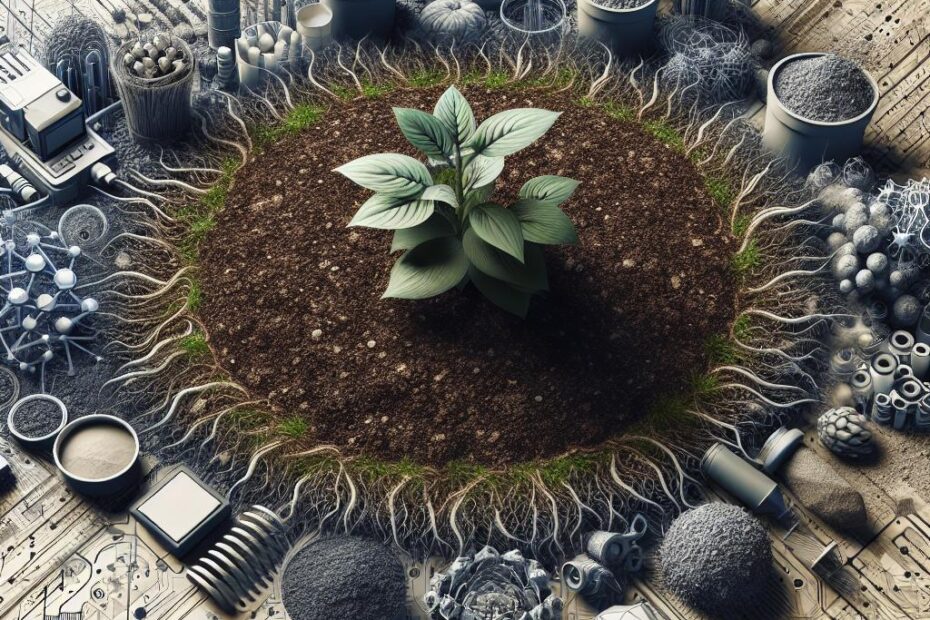In the world of gardening and landscaping, one of the most crucial decisions you’ll have to make is whether to use mulch or soil in your garden beds. Both mulch and soil serve important functions in promoting plant growth and maintaining soil health, but they have unique characteristics and applications that make them suitable for different purposes. In this article, we’ll explore the benefits of using mulch and soil, as well as provide practical tips on when to use each one.
Benefits of Mulch:
Mulch is a layer of organic or inorganic material that is spread over the soil surface to help retain moisture, suppress weeds, and regulate soil temperature. Here are some of the key benefits of using mulch in your garden:
-
Moisture Retention: Mulch helps to prevent evaporation of water from the soil, keeping your plants hydrated during dry spells.
-
Weed Suppression: By forming a barrier over the soil, mulch inhibits weed growth, reducing the need for manual weeding.
-
Temperature Regulation: Mulch acts as an insulating layer, protecting the soil from extreme temperature fluctuations that can harm plant roots.
-
Soil Health: Organic mulches such as wood chips and straw break down over time, enriching the soil with nutrients and improving its structure.
-
Aesthetic Appeal: Mulch can enhance the visual appeal of your garden beds, giving them a neat and tidy appearance.
Benefits of Soil:
Soil, on the other hand, is the foundation of any successful garden, providing essential nutrients and support for plant growth. Here are some of the key benefits of using soil in your garden beds:
-
Nutrient-Rich: Soil contains vital nutrients such as nitrogen, phosphorus, and potassium that plants need to thrive.
-
Root Support: Soil provides a stable base for plant roots to anchor themselves and absorb water and nutrients from the ground.
-
Microbial Activity: Healthy soil is teeming with beneficial microbes that promote plant growth and help break down organic matter.
-
pH Regulation: Soil plays a key role in regulating the pH level of the surrounding environment, which is crucial for optimal plant health.
-
Customization: With the right mix of soil components, you can tailor the soil composition to suit the specific needs of different plant species.
Practical Tips:
When deciding whether to use mulch or soil in your garden beds, consider the following practical tips:
- Use mulch for surface coverage and to protect newly planted seeds and seedlings.
- Choose soil amendments like compost and manure to enrich the soil with nutrients.
- Rotate between mulch and soil to promote soil health and prevent nutrient depletion.
- Consider using a combination of mulch and soil for optimal plant growth and maintenance.
Case Study:
A recent study conducted by the University of California Cooperative Extension found that a combination of mulch and soil amendments significantly improved soil quality and plant growth in a community garden setting. By incorporating organic mulches and compost into the soil, researchers observed increased microbial activity and nutrient availability, leading to healthier and more productive vegetable crops.
Conclusion:
In conclusion, both mulch and soil play important roles in promoting plant growth and maintaining soil health in your garden beds. While mulch helps retain moisture, suppress weeds, and regulate soil temperature, soil provides essential nutrients, root support, and microbial activity. By utilizing a combination of mulch and soil in your garden, you can create a thriving environment for your plants to flourish. Whether you choose to use mulch or soil will depend on the specific requirements of your garden and plants, so it’s essential to consider the benefits of each option and tailor your approach accordingly. With the right balance of mulch and soil, you can create a vibrant and productive garden space that will delight both you and your plants.
